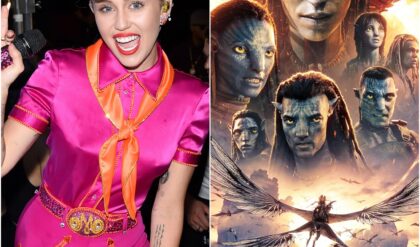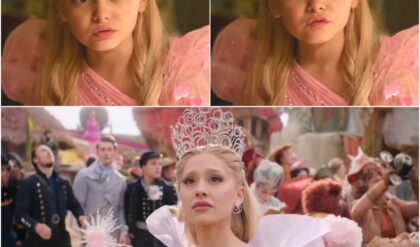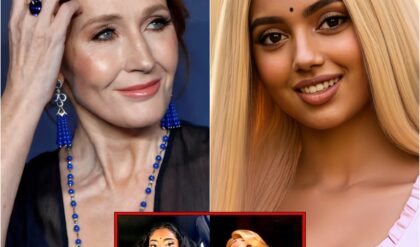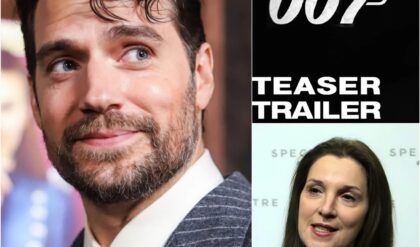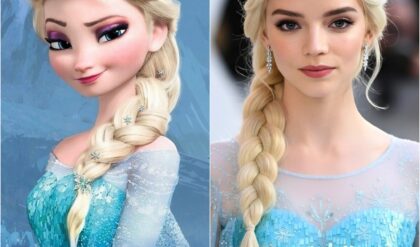Disney’s live-action remake of Snow White, released on March 21, 2025, was anticipated to be a crown jewel in the studio’s long line of reimagined classics. Instead, it became a lightning rod for controversy, with much of the criticism directed at lead actress Rachel Zegler and the film’s perceived “woke” agenda. After months of silence, Andrew Burnap, who plays Jonathan, Snow White’s love interest in the film, has finally spoken out about the drama surrounding Zegler and the movie’s disappointing performance at the box office. His comments, which surfaced in early April 2025, have reignited debates about the film’s failure, Zegler’s role in its downfall, and the broader challenges of modernizing a beloved classic in today’s polarized cultural climate.
The Snow White Remake: A High-Stakes Gamble
Disney’s Snow White remake was a high-budget endeavor, reportedly costing $270 million to produce. Directed by Marc Webb, the film aimed to reimagine the 1937 animated classic for a contemporary audience. Rachel Zegler, known for her breakout role in West Side Story, was cast as Snow White, while Gal Gadot played the Evil Queen. Burnap, a Tony Award-winning actor with a growing Hollywood presence, took on the role of Jonathan—a reimagined version of Prince Charming, now depicted as a commoner leading a resistance against the Evil Queen. The film introduced new elements, such as a feminist take on Snow White’s character, emphasizing her leadership and independence over the traditional romance narrative.

However, the project faced backlash from the start. As early as 2023, Zegler’s casting sparked controversy, with some critics, including conservative commentator Ben Shapiro, arguing she wasn’t “white enough” to play Snow White—a character famously described as having “skin white as snow.” Zegler, a Latina actress, faced racist backlash, prompting her to ask fans on social media not to tag her in the “nonsensical discourse” about her casting. The controversy escalated when set photos leaked in 2023, showing stand-ins for Zegler and Burnap alongside a diverse group of companions, leading to accusations of “woke” casting choices for the seven dwarfs. Disney later clarified that the photos were not official and featured stand-ins, but the damage was done.
Zegler’s own comments further fueled the fire. In 2022 interviews at Disney’s D23 Expo, she described the original 1937 film as “dated” in its portrayal of women, emphasizing that her Snow White would not be “saved by the prince” or “dreaming about true love.” Instead, the character would focus on becoming a fearless leader. She also called the original Prince Charming a “stalker” and jokingly suggested that scenes with Burnap’s character might be cut, saying, “It’s Hollywood, baby.” These remarks, which resurfaced in 2023, drew ire from fans who felt she was disrespecting the classic, as well as from conservative commentators who labeled her approach “anti-feminist” for dismissing Snow White’s romantic arc. By the time the film premiered, it was already mired in negative publicity.
The Film’s Reception: A Box Office Disappointment
Despite opening at number one, Snow White struggled to recoup its massive investment. The film received mixed reviews, with critics and audiences alike pointing to a disjointed narrative, lackluster visual effects, and a failure to capture the magic of the original. On platforms like Reddit, fans expressed disappointment with Zegler’s costume and makeup, noting that her look lacked the iconic “lips red as blood” and “skin white as snow” described in the fairy tale. Some even compared her dress to something “designed by ChatGPT,” reflecting broader dissatisfaction with the film’s aesthetic choices.
The movie also faced external challenges. Zegler’s political comments, including a “free Palestine” post on X in 2024, stirred further controversy, reportedly leading Disney to hire additional security for Gadot after she received death threats. Jonah Platt, son of the film’s producer Marc Platt, publicly criticized Zegler in a since-deleted Instagram comment, blaming her for dragging her “personal politics” into the promotion and hurting the film’s box office performance. Platt argued that her actions jeopardized a project with “hundreds of millions of dollars on the line,” a sentiment echoed by some online who felt Zegler’s outspokenness alienated audiences.
Andrew Burnap’s Perspective: A Measured Response
Andrew Burnap, who had previously been effusive in his praise for Zegler, finally addressed the controversy in April 2025. In interviews and YouTube reports, Burnap reportedly expressed frustration with how Zegler’s actions and comments impacted the film’s reception. Sources claim he felt sidelined during the promotional campaign, with Zegler taking center stage while his role as Jonathan was downplayed. Some reports even suggest Burnap blamed Zegler for the film’s failure, pointing to her controversial statements as a key factor in turning audiences away. One YouTube video titled “Andrew Burnap EXPOSES All The Horrible Things Rachel Zegler Did To Him During Snow White” alleges that Burnap felt undermined by Zegler’s behavior on set, though these claims remain unsubstantiated.
However, Burnap’s earlier statements paint a more nuanced picture. In a March 2025 interview with People, he described Zegler as the “perfect Snow White,” praising her “innate kindness and bravery” and calling her singing voice “what Heaven might sound like.” He also highlighted their strong rapport, noting that they bonded over discussions about stage versus film acting while working on Snow White. Burnap, who was simultaneously starring in Broadway’s Othello alongside Denzel Washington and Jake Gyllenhaal, expressed excitement for Zegler’s upcoming role as Eva Perón in Evita at the London Palladium. These comments suggest a professional admiration that contrasts sharply with the later narrative of blame.
It’s possible that Burnap’s frustration stems not from personal animosity but from the broader fallout of the film’s failure. As a rising star with roles in A24’s The Front Room, Apple TV+’s WeCrashed, and FX’s Under the Banner of Heaven, Burnap had much to gain from Snow White’s success. The film’s flop may have felt like a missed opportunity, especially given his initial excitement. In a March 2025 interview with NDTV, Burnap recalled the moment he was cast, saying, “I sat down on the ground and thought, wow, my life is really going to change from here.” That change, however, did not unfold as expected.
A Critical Look: Was Zegler the Sole Culprit?
While Burnap’s comments and the subsequent media frenzy have painted Zegler as the primary reason for Snow White’s failure, this narrative warrants scrutiny. Zegler’s remarks about the original film, while poorly received by some, were not entirely unfounded. The 1937 Snow White does reflect dated gender norms, with the princess largely defined by her beauty and domesticity. Zegler’s intent to portray a more empowered Snow White aligns with Disney’s broader trend of updating its princess narratives, as seen in films like Cinderella (2015) and Beauty and the Beast (2017). However, her delivery—particularly the flippant tone about Prince Charming—may have alienated fans who hold the original dear.
That said, the film’s failure cannot be attributed solely to Zegler. Disney’s decision to scale back promotional events, such as replacing a glitzy London premiere with a small-scale event in Segovia, Spain, suggests internal concerns about the film’s reception even before its release. The studio’s reported attempts to control Zegler’s media exposure, as noted by Page Six, indicate a lack of confidence in the project as a whole. Moreover, the film’s creative choices—such as the underwhelming costume design and narrative changes—likely played a significant role in its lukewarm reception, as evidenced by fan critiques on platforms like Reddit.
Burnap’s role in the controversy also deserves examination. While he reportedly blamed Zegler, his earlier praise for her suggests a more complex dynamic. It’s possible that media outlets and YouTube channels have exaggerated his statements to fuel drama, a common tactic in today’s click-driven landscape. Burnap’s career trajectory remains strong, with his Broadway success and upcoming projects indicating that Snow White’s failure is unlikely to derail his momentum. For Zegler, however, the backlash has been more severe, with reports of her breaking down in tears over the criticism and Burnap’s alleged blame.
The Bigger Picture: Modernizing Classics in a Polarized Era
The Snow White debacle highlights the challenges of reimagining classic stories in an era of heightened cultural and political sensitivity. Disney’s attempt to modernize the tale by emphasizing Snow White’s agency was a noble goal, but it clashed with audience expectations and sparked accusations of “wokeness.” Zegler’s political comments, while unrelated to the film’s content, further polarized viewers, illustrating how quickly personal views can overshadow artistic work in the age of social media.
Burnap’s decision to speak out, whether out of genuine frustration or media provocation, underscores the pressure faced by actors in high-profile projects. His comments, combined with the broader discourse around Zegler, serve as a reminder that adapting cherished stories requires a delicate balance—one that Snow White ultimately failed to achieve. As Disney moves forward with future remakes, the studio may need to rethink its approach to both casting and promotion, ensuring that the magic of the originals is preserved while embracing meaningful updates for a new generation.
